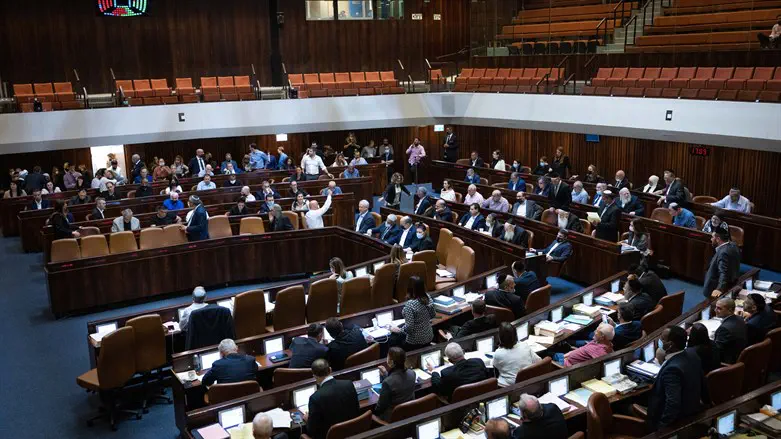
Israel's Knesset dissolved itself on Thursday morning, paving the way for elections later this year.
The elections are expected to be held on November 1.
In the meantime, MK Yair Lapid (Yesh Atid), who until now has served as Foreign Minister and as Alternate Prime Minister, will take on the role of acting Prime Minister, starting at midnight on Thursday.
Immediately after the Knesset dissolved, Israeli Prime Minister Naftali Bennett stood up and switched seats with Lapid. Bennett is expected to stay on as Alternate Prime Minister, so as to smooth the transition. Bennett announced Wednesday that he will not run in the upcoming elections.
A small ceremony will be held Thursday in the Prime Minister's Office. Media will not be present.
On Wednesday afternoon, the bill to dissolve the Knesset passed its first reading, paving the way for its second and third readings. However, issues soon arose, namely, that United Torah Judaism's MK Moshe Gafni submitted a lengthy list of objections to various parts of the law, and the Joint Arab List submitted a total of 12,000 objections, each of which would have to be discussed before the bill could go for its second and third votes.
The Arab party's goal, rather than changing parts of the bill, was to delay the vote so as to allow the Judea and Samaria regulations, which had not been extended, to expire. Later on Wednesday afternoon, it was announced that the Joint Arab List's objections had been disqualified.
On Thursday morning, the bill passed its third reading, with 92 voting in favor and 0 voting against the dissolution. The Labor party walked out of the vote, in protest of a different bill failing.
The Judea and Samaria regulations will now be automatically extended for another six months.

